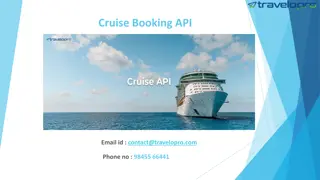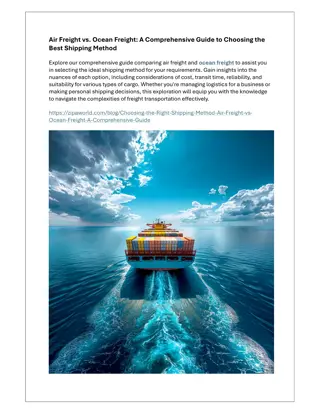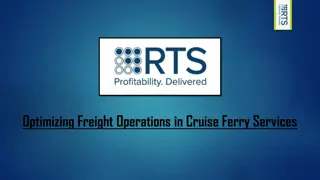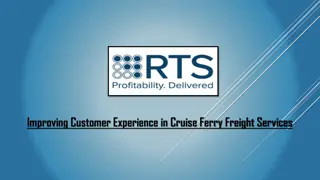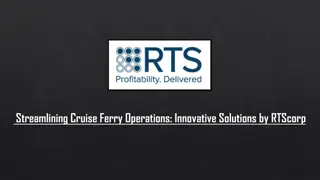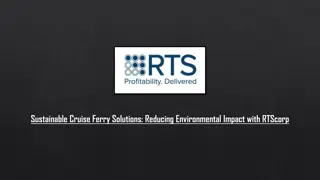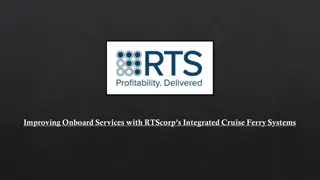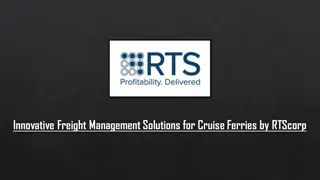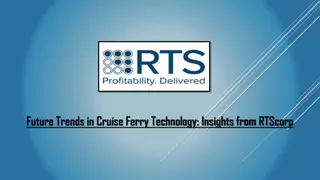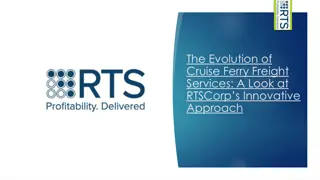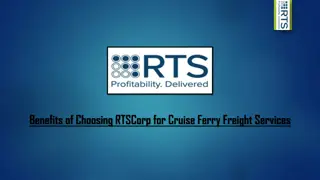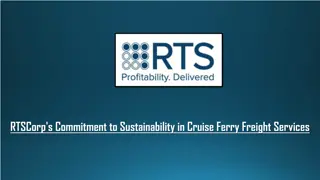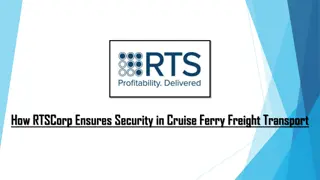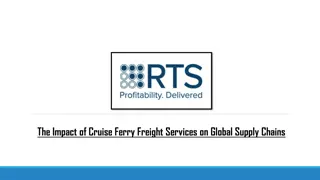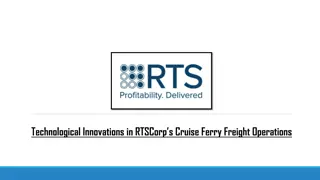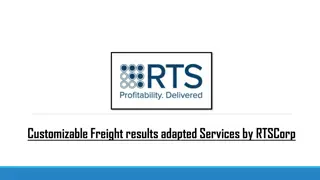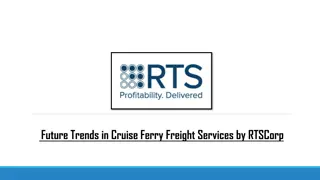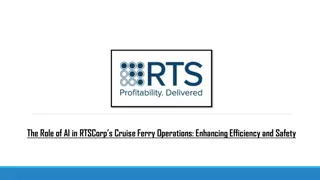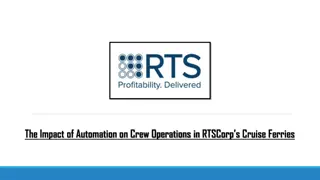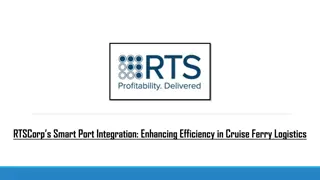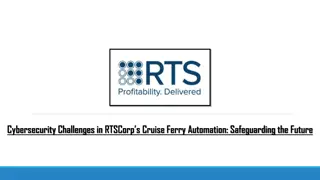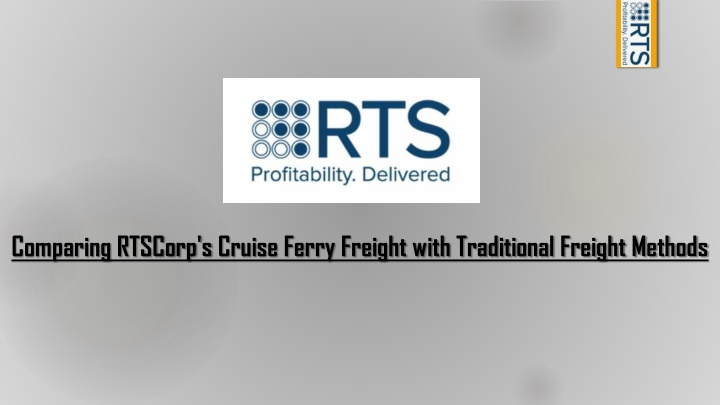
Comparing RTSCorp's Cruise Ferry Freight with Traditional Freight Methods
In the ever-evolving landscape of global logistics, businesses constantly seek the most efficient and cost-effective ways to transport goods. RTSCorp, a leader in the industry, offers a variety of freight services tailored to meet diverse shipping ne
Download Presentation

Please find below an Image/Link to download the presentation.
The content on the website is provided AS IS for your information and personal use only. It may not be sold, licensed, or shared on other websites without obtaining consent from the author. If you encounter any issues during the download, it is possible that the publisher has removed the file from their server.
You are allowed to download the files provided on this website for personal or commercial use, subject to the condition that they are used lawfully. All files are the property of their respective owners.
The content on the website is provided AS IS for your information and personal use only. It may not be sold, licensed, or shared on other websites without obtaining consent from the author.
E N D
Presentation Transcript
Comparing RTSCorp's Cruise Ferry Freight with Traditional Freight Methods
In the ever-evolving landscape of global logistics, businesses constantly seek the most efficient and cost-effective ways to transport goods. RTSCorp, a leader in the industry, offers a variety of freight services tailored to meet diverse shipping needs. Among these, their cruise ferry freight services have emerged as a game-changer, offering distinct advantages over traditional freight methods. This article explores how RTSCorp's cruise ferry freight compares to more conventional shipping options.
The Flexibility of Cruise Ferry Freight Services One of the key advantages of RTSCorp's cruise ferry freight services is flexibility. Traditional freight methods, such as container shipping and rail transport, often involve rigid schedules and fixed routes. These limitations can lead to delays, particularly in situations where there is a need for rapid adjustments to shipping plans due to changing demand or unforeseen circumstances. Cruise ferry freight, on the other hand, offers a more adaptable solution. These ferries operate on multiple routes and schedules, allowing for more dynamic planning. This flexibility is especially valuable for businesses that need to transport goods across regions with varying demand patterns or where traditional infrastructure may not be as developed. Speed and Efficiency Another significant benefit of RTSCorp's cruise ferry freight services is speed. Traditional freight methods, particularly those involving ocean freight, can be time-consuming. Ships must follow specific sea lanes, and loading and unloading at ports can be a lengthy process. Rail freight, while faster in some instances, is still subject to delays due to track congestion, maintenance issues, or logistical challenges at terminals. Cruise ferries, in contrast, are designed for quicker turnarounds. Their ability to operate between multiple ports with shorter loading times means goods can be transported more swiftly. This is crucial for businesses dealing with perishable goods or time-sensitive shipments, where delays could result in significant losses.
Cost-Effectiveness Cost is always a critical factor in choosing a freight service. Traditional freight methods, while reliable, can be expensive, particularly for smaller shipments that do not fully utilize container space. The costs associated with warehousing, handling, and the longer transit times can add up, making traditional freight less attractive for certain types of cargo. RTSCorp s cruise ferry freight services offer a more cost-effective alternative. By combining passenger and freight transport, these ferries maximize the use of space, leading to lower costs for shippers. Additionally, the shorter transit times and reduced handling requirements further contribute to overall cost savings. Environmental Impact In today s world, the environmental impact of logistics operations is a growing concern. Traditional freight methods, particularly air and truck transport, are significant contributors to carbon emissions. Rail and ocean freight are more environmentally friendly but still have their drawbacks, especially when considering the energy used and emissions produced over long distances. Cruise ferry freight services present a more sustainable option. These ferries typically have lower emissions per ton of cargo compared to traditional trucks or airplanes, making them a greener choice. RTSCorp has invested in eco-friendly technologies for its ferry fleet, further reducing the environmental footprint of its operations.
Conclusion RTSCorp's cruise ferry freight servicesoffer a compelling alternative to traditional freight methods, particularly for businesses looking for flexibility, speed, cost-effectiveness, and environmental sustainability. As the logistics industry continues to evolve, innovative solutions like cruise ferry freight are likely to play an increasingly important role in meeting the demands of global trade. For companies seeking to optimize their supply chain, RTSCorp'scruise ferry freight services present a smart and forward-thinking option.


